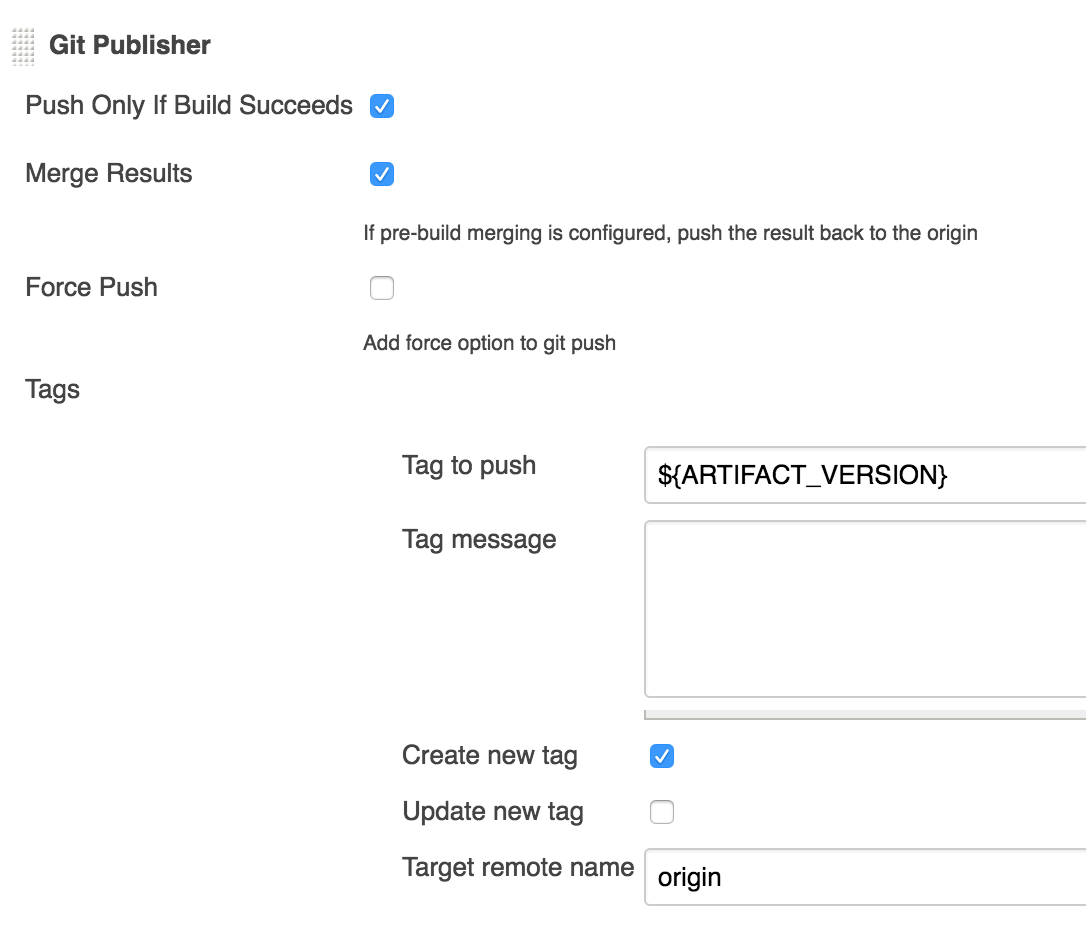-
Benjamin Sousa authored
Add placeholder for project version in README, so that copy/paste doesn't leave an old version of the dependency in the parent project's build
Benjamin Sousa authoredAdd placeholder for project version in README, so that copy/paste doesn't leave an old version of the dependency in the parent project's build
continuous-publish-plugin
This project provides a Gradle plugin to help you continuously publish your project.
Adding to your Gradle project
To get the dependency, you will need a buildscript block at the top of your build.gradle:
buildscript {
repositories {
maven () {
url "https://code.doit.wisc.edu/maven/content/repositories/uw-releases"
credentials {
username codeDoitUsername
password codeDoitPassword
}
}
}
dependencies {
classpath 'edu.wisc.doit.gradle:continuous-publish-plugin:<current_version>'
}
}Replace <current_version> with the current version of this project.
Note the codeDoitUsername and codeDoitPassword properties.
This project is distributed via the Shared Tools Maven Artifact Repository,
you will need a file (or symlink) named gradle.properties containing the following properties:
codeDoitUsername=your-netid-username
codeDoitPassword=your-code.doit-password-tokenAfter that, apply the plugin like so:
apply plugin: `edu.wisc.doit.gradle.continuous-publish-plugin`Usage
This plugin provides tasks that are best intended to be invoked by a Continuous Integration environment like Jenkins.
On Pull Requests
The confirmProjectVersionIncremented task is intended to be executed during a pull request to confirm that the contributor has incremented the project.version field in the project's build.gradle ahead of the current value in the file on the target branch.
If the merged result on build.gradle has project.version that is greater than what git describe returns, the build will be allowed to proceed. Otherwise, a GradleException is thrown to fail the build.
This behavior can be skipped by adding the following to your build.gradle:
cpublish {
skip: true
}On commits to master branch
If a commit lands on master, and cpublish.skip is false, you can have confidence that the gradle project.version includes a new value. Running gradle uploadArchives to publish a new release will work.
After the uploadArchives task completes, you can have Jenkins tag the release and push the tag to the repository.
- In your Jenkins build job, in the Build section, add a
Execute system Groovy scriptstep, and have it run a copy of the provided artifact-version.groovy. - In the same job, in the Post-build actions section, add a
Git Publisherstep, and configure it:
Developing the plugin
- Java 8
- Gradle (optional, Gradle wrapper is provided)
Building the plugin
./gradlew build
